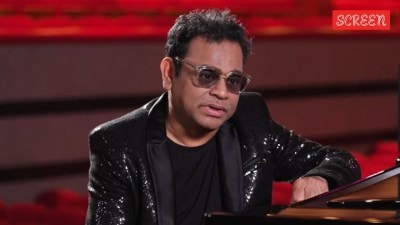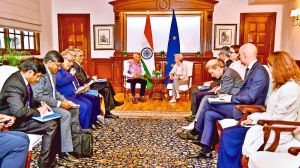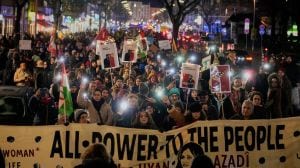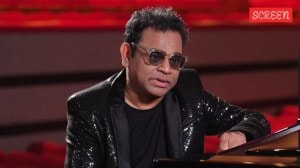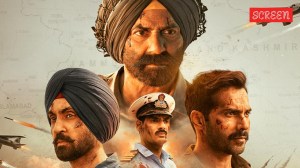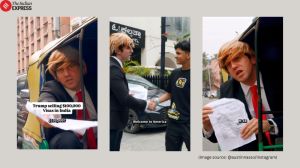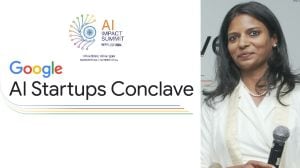Work Unsigned
We have a fairly fixed idea of intellectual property,theres a gate and a name-plate around your imaginative labour.
We have a fairly fixed idea of intellectual property theres a gate and a name-plate around your imaginative labour. When you write something professionally,in return for your creative work,you expect regard and remuneration.
But what explains that weird tribe of people who choose anonymity instead? In times where much of your work goes into buffing your brand and making sure youre remembered,it seems crazy to deliberately evade attention unless youre hiding something.
We tend to forget that this attachment to authorship is a 20th century thing,that for most of our history,it seemed perfectly natural to simply create without affixing your name to it. That seems unimaginable now,in a situation where money rides on a readers interest in a particular writer.
But much of the worlds best artistic work has been done by Anon. Many of our splendid old stories are just there,epic,nested narratives composed across the years. Medieval art or songs didnt come with signatures either,because it didnt matter. The point is the story,not the storyteller. You were just a conduit,a channel for that extraordinary work. It was not a given that you had to trumpet your identity as author. Jane Austens books were signed,simply,by A Lady.
Up to the 19th century,reviews tended to be anonymous. Even now,there is a debate on academic peer-reviewing,whether it is better to hide the name of the author when you send a work to be vetted,or whether an open system leads to better results.
Many of the important things that surround you are still the work of anonymous minds and hands. A recipe,an antique table,a jet engine,a life-saving drug,the software you use,they rarely come with signatures. But with literary and artistic works,we tend to search for the name. Someone like Banksy,the British graffiti artist whose real identity is still secret despite widespread public admiration,puzzles us. What motivates these folks to make a raid on our consciousness,if they dont want the attendant benefits of celebrity?
Though if you can stop hankering after feedback or applause,it can be incredibly freeing to write invisibly. Anonymity impacts style,too you discover a new voice freer,sometimes more vehement,less hung up on external judgment. You strike poses,discard and pick up techniques. You are more honest to the work,less concerned about presenting yourself through it.
English professor John Mullan,who has written a book on literary anonymity,traces a range of motives behind these concealments. It could be diffidence or embarrassment,fear of state reprisal,or a radical selflessness. Then theres pseudonymity and literary cross-dressing,like Charlotte Bronte being Currer Bell or Mary Ann Evans choosing to be George Eliot because she wanted her work to be read on its own terms,not slotted as a womans novel. There are those who secretly freelance under made-up names,or those who need the security of a mask to try their hands at certain kinds of writing,like say,romance novels. Choosing a pseudonym need not be a self-effacing act after a certain artistic reputation is built around a name,it is usually as egotistically guarded as a personal one. Who cares that George Orwell was Eric Blair or that Anthony Burgess was Jack Wilson? Anonymity,though,is a shunning of the proprietary impulse altogether.
Sometimes,anonymity is also a stealthy marketing trick,a sort of inverted self-promotion that attempts to get people talking and wondering. Like Primary Colors,a novel that thinly veiled the story of Bill Clintons first presidential campaign,and was later revealed to be the work of journalist Joe Klein. Some anonymous writers are just begging to be outed,and hold out a peekaboo titillation only to make sure you notice.
But to insist on names is to demand accountability. Henry VIII officially decreed that books must come with the names of printers and authors,to deter transgressive writing. That logic can be seen with the Web today,as some sites try to reduce trolling by forcing people to sign in through their social network identities. Their argument is that complete anonymity,so far the convention online,leads to a breakdown of civic values,destroys open forums with hate and invective. But stripping these so-called anonymice of their cover comes with a larger cost to free expression.
But for all the secret scribblers out there,the poet Nicanor Parra had the most profound advice,to write as you will:
In poetry everything is permitted. / With only this condition of course,/ You have to improve the blank page.
amulya.gopalakrishnanexpressindia.com
- 01
- 02
- 03
- 04
- 05


